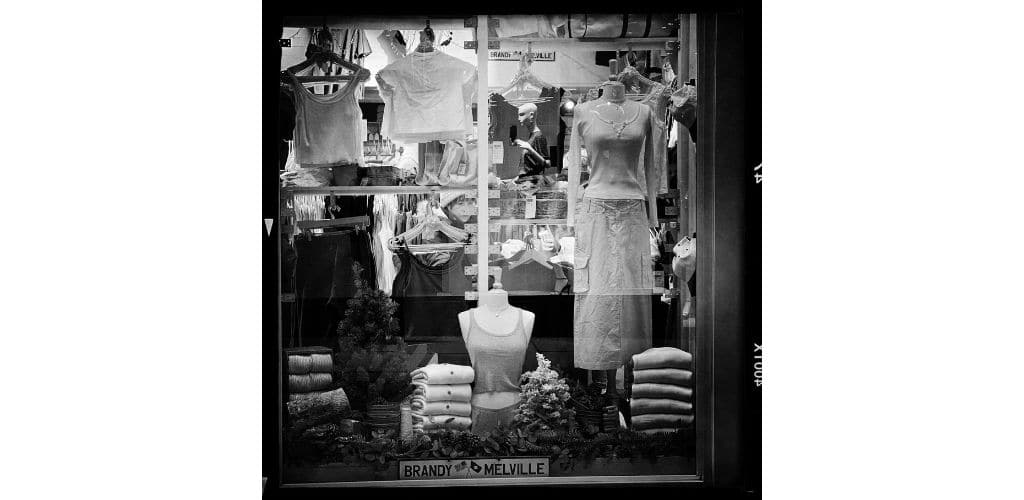The US Court of Appeals for the Ninth Circuit has found that specific knowledge is required for liability in a case of contributory trademark infringement.
The case is Y.Y.G.M. SA, DBA Brandy Melville v. Redbubble, Inc., Case Nos. 21-56150; -56236 (9th Cir. July 24, 2023).
Brandy Melville manufactures clothing, home goods, and other items and owns several trademarks, including the registered Brandy Melville Heart Mark and LA Lightning Mark:
The Heart Mark consists of the words “Brandy Melville” in black font with a pink heart in between them. It is registered for use on clothing, stickers, jewelry, and ornaments, and Brandy Melville sells signs and wall hangings bearing the Heart Mark. The Lightning Mark features the words “Los Angeles” in yellow font with the “L” styled like a lightning bolt.
Brandy Melville alleged infringement of its trademarks by Redbubble, which owns and operates an online marketplace where artists can upload their work to be printed on various products and sold.
As the Ninth Circuit opinion noted,
Redbubble collects payment, sends the order to a manufacturer, arranges shipping, and handles refunds. Redbubble does not inspect goods before shipping, as third parties fulfill orders and ship products in Redbubble-branded packaging. Artists and consumers have no direct contact.
In 2018, Brandy Melville notified Redbubble of infringing products listed on Redbubble’s website. Redbubble removed those listings and requested that Brandy Melville notify it of additional listings it wanted removed. After finding additional infringing products, Brandy Melville sent a second notice the next day.
A year later, Brandy sued Redbubble, alleging various trademark-related causes of action.
A jury found Redbubble liable for:
- willful contributory counterfeiting of the Heart Mark and Lightning Mark,
- contributory infringement of those two marks, and
- contributory infringement of unregistered trademarks that were “Brandy Melville” variations.
The district court granted Redbubble’s motion for judgment as a matter of law on a contributory counterfeiting claim for the Heart Mark.
Redbubble appealed, arguing that the district court applied the wrong standard for contributory liability under the Lanham Act, which governs trademarks.
As the court noted, under 15 U.S.C. § 1114(1)(a),
The Lanham Act provides a civil cause of action against anyone who “without the consent of the registrant” uses in commerce a “reproduction, counterfeit, copy, or colorable imitation of a registered mark in connection with the sale . . . of any goods or services on or in connection with which such use is likely to cause confusion, or to cause mistake, or to deceive.”
A party that “intentionally induces another to infringe a trademark” or who “continues to supply its product to one whom it knows or has reason to know is engaging in trademark infringement” is “contributorially responsible for any harm done as a result of the deceit.”
The court noted that a party meets the “knows or has reason to know” standard if it is willfully blind to infringement.
Willful blindness requires:
- subjective belief that infringement was likely occurring, and
- deliberate actions to avoid learning about the infringement.
Redbubble contended that willful blindness requires knowledge of specific infringers or instances of infringement.
Brandy Melville argued that specific knowledge is not required because defendants have a duty to take reasonable corrective action upon gaining general awareness of infringement.
The court agreed with Redbubble and vacated and remanded for reconsideration of Redbubble’s motion for judgment as a matter of law under the correct legal standard.
We previously blogged about contributory infringement in the context of copyright (rather than trademark) here.
Just like the haiku above, we like to keep our posts short and sweet. Hopefully, you found this bite-sized information helpful. If you would like more information, please do not hesitate to contact us here.


